
1-866-fnord23  Contact Us
Contact Us
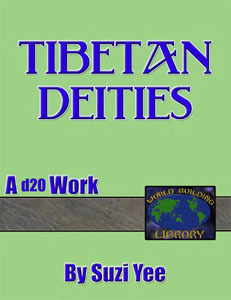
Welcome to World Building Library: Tibetan Deities. The following book is about how Tibetans view their gods and goddesses, the metaphysical beings that affect their day-to-day reality. Although Tibet is predominantly Buddhist, their variety of Buddhism is distinct from the form practiced in other parts of Asia. Tibetan Buddhism has roots in tantric traditions, utilizing magical or mystical elements in their rituals, such as the use of mandalas and mantras in their mediation and worship. Tantric traditions focus on the ritual power of the body, speech, and mind.
Other factors unique to Tibet also shaped Tibetan Buddhism: cultural influences from India, the harsh living conditions of Tibet, the pervasive number of nomadic pastoralists in the Tibetan culture, and the absorption of Bon deities and beliefs. Bon was the predominant religion in Tibet before the introduction of Buddhism from India in the 7th century. Although Buddhist text arrived from India as early as the 1st century, Buddhism did not take form until 774 A.D., when Guru Rinpoche merged tantric Buddhism with the local Bon religion, forming what is commonly called Tibetan Buddhism.
This book covers the pantheon of deities, many inherited from Bon tradition and interpreted through a Buddhist filter. The Tibetan metaphysical realm is swarming with spirits, both wrathful and benevolent. Placating gods through ritual offering, preemptively not offending gods through wrong action, and having a personal array of protective spirits and gods is the suggested method of living life in Tibet. They often classify their gods into categories or type, attaching the appropriate prefix or suffix to the name of the deity to denote classification. Other times they have unique gods and goddess, which have an anthropomorphized form as well as a general form found in nature. When the gods are offended, they can inflict conditions and diseases upon people. They can also possess individuals (see World Building Library: Tibetan Exorcisms). I hope you enjoy exploring and using this pantheon at your game table.
Written by Suzi Yee


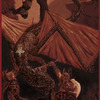 Monster Geographica: Hill & Mountain
Monster Geographica: Hill & Mountain
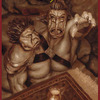 Monster Geographica: Underground
Monster Geographica: Underground
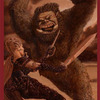 Monster Geographica: Marsh & Aquatic
Monster Geographica: Marsh & Aquatic
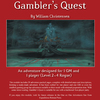 1 on 1 Adventures: Gambler's Quest
1 on 1 Adventures: Gambler's Quest
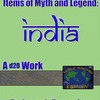 World Building Library: Items of Myth and Legen...
World Building Library: Items of Myth and Legen...